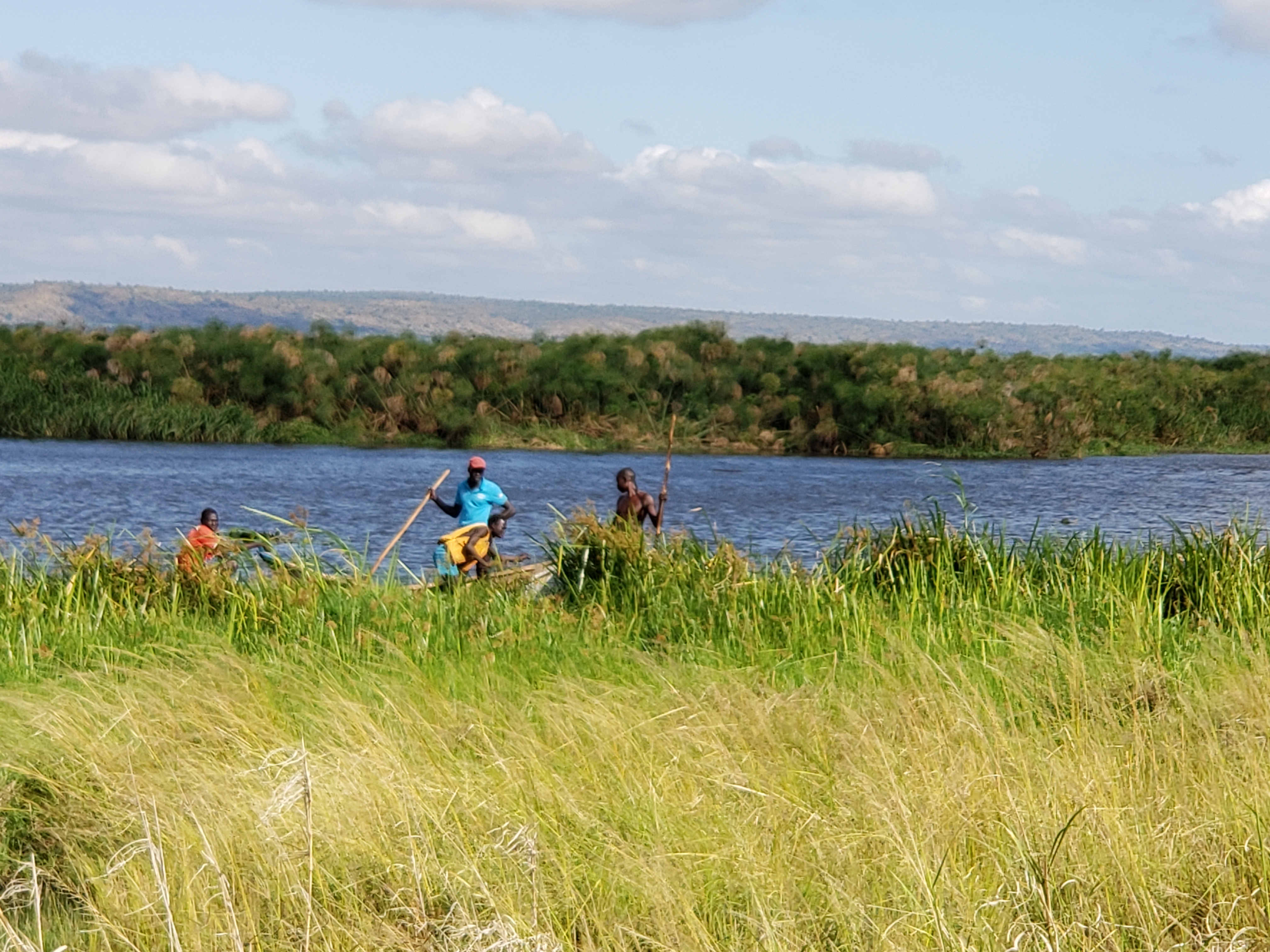I looked out at the expanse of 90+ scientists from 17 different countries, most located around the seven African Great Lakes. They were seated around tables as relative strangers. I knew that once I asked my question, I couldn’t predict the range of responses, but I asked it anyway. “If we’re successful with this transboundary collaboration across the African Great Lakes region, what will the news headlines say in 5 years?”
I think a lot about big questions related to water. There’s an expression that says: “Water is life.” This is true, and water is also my life. After 17 years working on the North American Great Lakes, I now work as a global consultant facilitating collaboration for the health of people and the planet. My work emphasizes equity and justice that results in clean, accessible, affordable water and mitigates climate change impacts.
For this event, I was in Entebbe, Uganda, working with the African Center for Aquatic Research and Education. We were laying groundwork for the first transboundary lake advisory groups for the African Great Lakes – a big step towards healthier lakes that many communities rely on for drinking water and fish.
Our event was a 10 minute walk to Lake Victoria, the second largest lake in the world by surface area – second only to Lake Superior. There are six other African Great Lakes (Albert, Edward, Kivu, Malawi/Niassa/Nyasa, Tanganyika, and Turkana), bordered by 10 countries. Every lake has at least 2 bordering countries, which brings an added geopolitical dimension. They comprise 25% of the world’s surface freshwater, even more than the North American Great Lakes. Fifty million lives depend on these lakes for their welfare and their livelihoods every day. The future of a lot of freshwater – and the people who depend on it – was at stake in this workshop.
Returning to my question about news headlines in 5 years, here’s what was unpredictable. I was asking meeting attendees to focus on the big picture of a future, multi-national vision. Many researchers and lake managers habitually focus solely on one part of their lake, within their country. And, they often focused on very specific aspects of that lake – that’s their job. The political relationships between some bordering countries are not always easy to navigate. My job was to help attendees develop what I hoped would become a shared future vision for all of the African Great Lakes. A successful collaboration depended on this perspective.
Researchers later told me that my “activity” wasn’t “what usually happens” at scientific meetings. But many saw the point. Because here’s what happened: despite their differences in perspective, geography, and focus, what they composed had consistently clear, cross-border unity with a collective vision.
Here are some of the headlines we saw emerge:
- African Great Lakes Water Now Fishable, Swimmable and Drinkable
- Eureka! Fish stocks in African Great Lakes Increasing
- Researchers Team up to Influence Policy for Healthy African Great Lakes
- Harmonized African Great Lakes Collaboration Optimizes Economic Benefits and Ecosystem Health
The next day, attendees began working together in groups that did not know each other, although these groups shared a common lake. What we all were beginning to realize was that they collectively held very common hopes and a shared vision for healthy lakes and communities.
Fast forward a year later – these groups now meet regularly. We are learning from each other. We are moving the needle on much needed progress for the African Great Lakes and those who rely on them. We continue asking big questions and try to address them, together:
- Whose voices and ideas are missing from our discussion table?
- As we break down silos, what bridges do we need to build?
- How can we magnify strength by lifting each other up?
Water connects us all. I believe deeply in the power of communities to protect and enhance global waterways so that all can access clean, affordable drinking water and be resilient as they face climate change impacts. This is work Zephyr Mangata does with head and heart fully engaged, resulting in vital systemic successes on the path to water equity.

